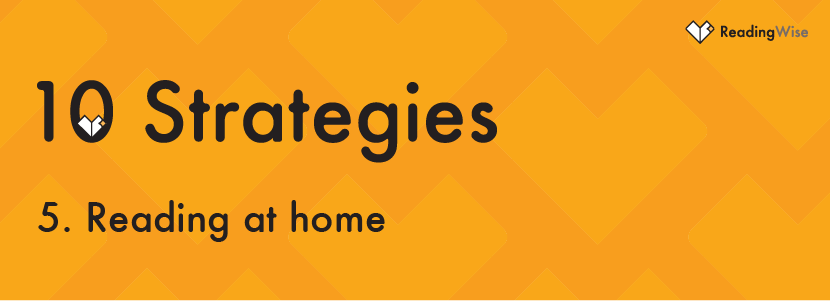
For many children, learning to read is a piece of cake. What matters is that the right ingredients are provided and they get plenty of opportunity to enjoy it – and that means at home.
The benefits of getting parents to read to their children from an early age are now widely recognised.
“Reading to young children,” says America’s largest literacy charity Reading is Fundamental, “promotes language acquisition and literacy development and, later on, achievement in reading comprehension and overall success in school.”
According to the charity, the percentage of young children read aloud to daily by a family member is an important indicator of how well they are prepared for school. Yet recent studies in the United States suggest too many American youngsters go without the benefit of a family member reading to them.
In the UK, the National Literacy Trust has played a leading role in promoting parental involvement in children’s reading. In 2001, it published a review of available research that concluded there were many ways in which parents can positively influence their children’s literacy.
But it also warned that many children were at risk of being left behind in their reading because of lack of support in the home.
“Early intervention is important because parental activities at home (such as parents reading to their children, books in the home, library attendance, parent-child relationships) partially account for disparities in performance between children at school entry,” says the trust.
The study lists the key ingredients for effective parental involvement as follows:
- A language and literacy-rich environment in the home (such as books and computers)
- Listening and talking to children about books and literacy activities
- High expectations of parents for their children’s educational development
- Support programmes to help parents learn about literacy and how to tackle any difficulties experienced by their children
- Initiatives that encourage and enable parents to improve their own literacy
- Recognition by schools and government institutions that creating a culture of literacy in the home is as important as literacy at school.
These ingredients feature strongly in a number of effective intervention strategies identified by the trust. They include reading books to babies and reading and sharing books with three-to-five-year-olds.
“The simple activity of parents reading to their children and sharing books in the pre-school years affects children’s early language comprehension, listening and speaking skills, understanding of narrative and story and attitudes towards reading, all of which prepare them for school,” it says.
While these early interventions are important to establish a culture of literacy in the home, schools also have a vital role to play. Parents should be encouraged to listen to their children read once they start school and should be given training when needed to enable them to take part in paired reading, family literacy and other structured reading programmes.
Evidence from both sides of the Atlantic shows that children who live in poverty or whose parents have poor literacy skills are less likely to be read to or told stories regularly at home than children from more advantaged backgrounds.
The good news is that schools, many of which would have been reluctant to actively involve parents in learning a generation ago, now actively encourage them to read, listen to and share books with their children.
This is how Jo Blakeman, a Wiltshire primary school teacher, one of hundreds of practitioners who took part in the ReadingWise survey which helped shape the 10 literacy strategies set out in this series, puts it:
“There are always going to be children who struggle with reading; we cannot do it all in school. Parents also have a responsibility to help children learn to read. All parents supporting their children to read and write at home would, I believe, have the greatest impact on their learning.”
In order to make this a reality, the ingredients for effective parental involvement identified by the National Literacy Trust, listed above, need to be available to all children from birth onwards.
Given the right recipe, learning to read will be a piece of cake for many more children.
Next week: Effective early childhood development - the next strategy in our series examines further how the right support for literacy in the early years can benefit children once they start school









